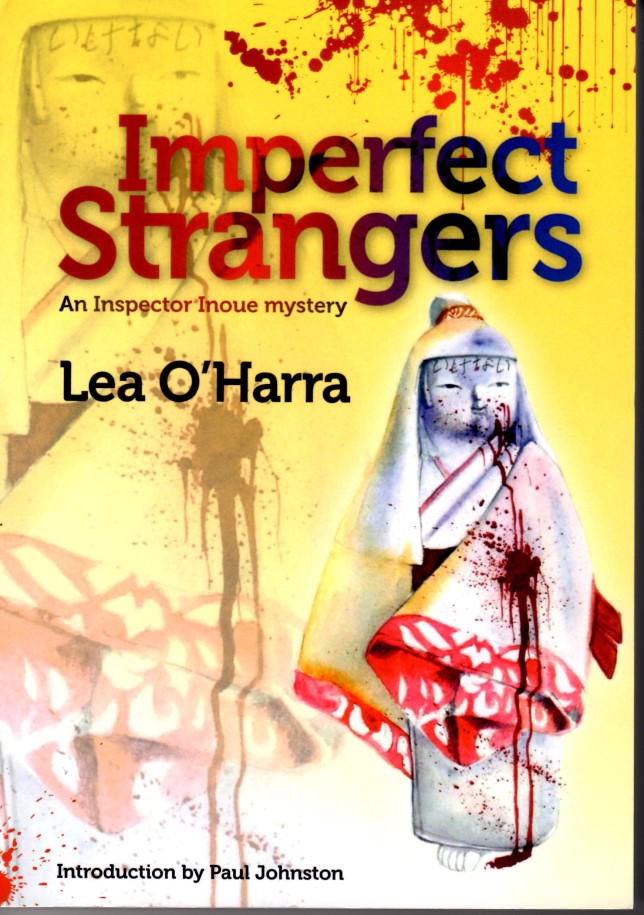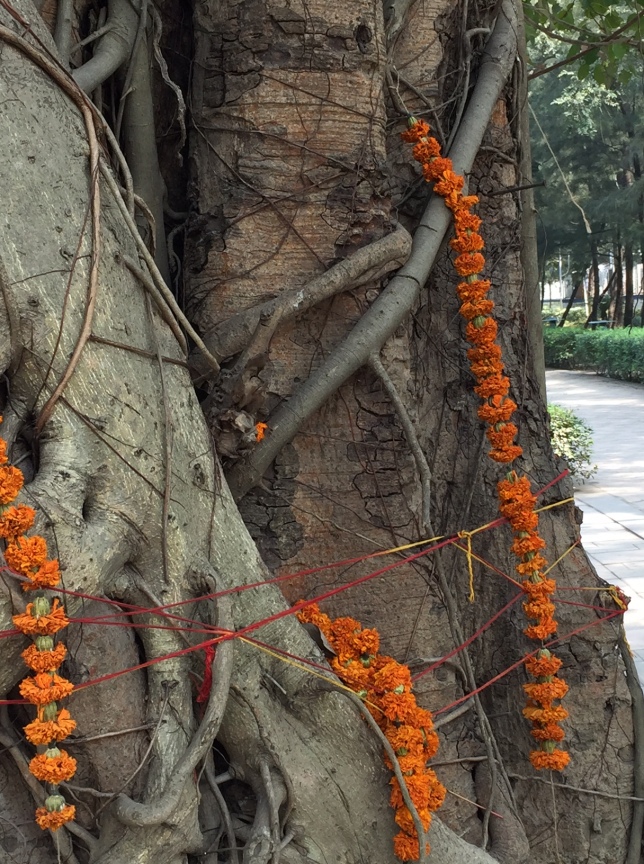 Earlier this year I was invited to participate in the Tata Steel Kolkata Literary Meet to help launch The Best Asian Short Stories 2017 anthology published by Kitaab International in Singapore. I would be appearing along with the publisher, Zafar Anjum; the editor, Monideepa Sahu, who lives in India; and Wan Phing Lim, a young writer from Malaysia who had contributed “Snake Bridge Temple,” a lively, humorous story about a tough motorcycle racer whose bike seat is decorated with Hello Kitty. One of my stories, “Mon-chan,” about a Japanese woman dealing with her mother’s senility, was selected for this anthology as well.
Earlier this year I was invited to participate in the Tata Steel Kolkata Literary Meet to help launch The Best Asian Short Stories 2017 anthology published by Kitaab International in Singapore. I would be appearing along with the publisher, Zafar Anjum; the editor, Monideepa Sahu, who lives in India; and Wan Phing Lim, a young writer from Malaysia who had contributed “Snake Bridge Temple,” a lively, humorous story about a tough motorcycle racer whose bike seat is decorated with Hello Kitty. One of my stories, “Mon-chan,” about a Japanese woman dealing with her mother’s senility, was selected for this anthology as well.
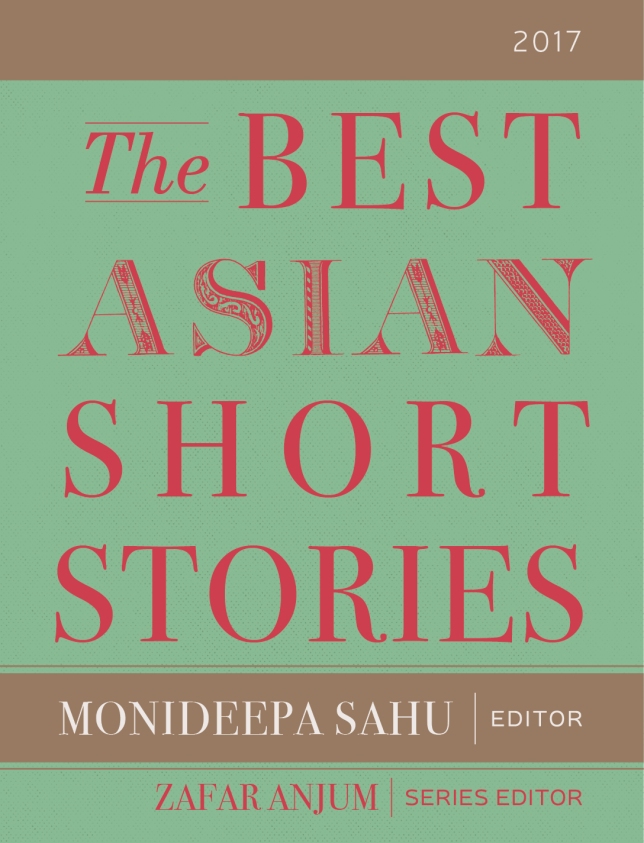
Before the festival, I read every story in the anthology. Some of my favorites were “Jelly Beans” by Soniah Kamal, about a Pakistani man in Atlanta whose parents are shocked when he marries a white woman (who turns out to be a divorcee with a child!); “Girls’ House” by Clara Chow, which concerns the marriage between a rich pampered Hong Kong girl and her devoted, yet poor and proud husband – with a big surprise at the end of the story; and Geeta Kothari’s “The Spaces Between Stars,” featuring an Indian expat in America. It was also interesting to read stories concerning Japan from a non-Western perspective, such as “March, Ma and Sakura” by Geetanjali Shree, who is from India and writes in Hindi. I enjoyed many others as well. For the record, this book is not available from Amazon, but it can be ordered directly from the publisher’s website . They will send it anywhere in the world.
Before I departed for India, I got lots of advice: “You should get shots for typhoid and dengue fever!” “Brush your teeth with bottled water!” “Don’t eat the street food!” “Wear a mask!” I packed some masks, but I had no idea what I should wear. When I checked out the website, most of the female presenters were resplendent in colorful saris and salwar kameez suits. Apparently, women were not supposed to show any skin above the ankle.
In any case, I packed some clothes and books and set out for the airport. The festival organizers had booked me on a Cathay Pacific flight, with a layover in Hong Kong. I arrived in Kolkata at about eleven p.m. A festival volunteer was waiting for me at the airport. He hustled me into a car, and I had my first taste of Indian traffic – a symphony of horns, cars and trucks veering within inches of each other. I was amazed that the streets were so lively at nearly midnight. I saw a woman in a bright clothes and a veil smoothing asphalt with a rake, Santa Claus decorations (though it was late January), light-striped poles, and the Test Tube Baby Center.
Once we arrived at the hotel, armed guards checked the hood and trunk of the car. I was also mildly surprised that I had to go through a metal detector to get into the hotel. I checked into my gorgeous room, overlooking the pool, took a shower, then happily tucked myself into the crisp, white sheets.

The next morning, I went down to the lavish breakfast buffet. Geek that I am, I was thrilled to recognize famous writers at the nearby tables. The handsome, slim, white-haired guy dining off to my left was Manu Joseph, whose novel Serious Men had been published with a lot of fanfare a few years back in the United States. (I later bought, read, and enjoyed his newest book, Miss Laila, Armed and Dangerous, which I thought would be a fun, mad-cap thriller, but turned out to be a more serious novel with political undertones; the title refers to a certain tendency to assume that Muslims are terrorists.) Having studied the program. I also recognized shiny-pated Booker Prize short-listed author Jeet Thayil whose new novel The Book of Chocolate Saints is on my TBR list, and Ruskin Bond, an elderly British Indian, one of India’s most beloved writers, who drew huge crowds every time he presented on stage. Bond published his first book at the age of 17, and has written over 500 short stories, essays, and novellas, and more than 50 books for children. Although I have yet to read his work, I later picked up a copy of his novel A Flight of Pigeons, which was the basis for a film.
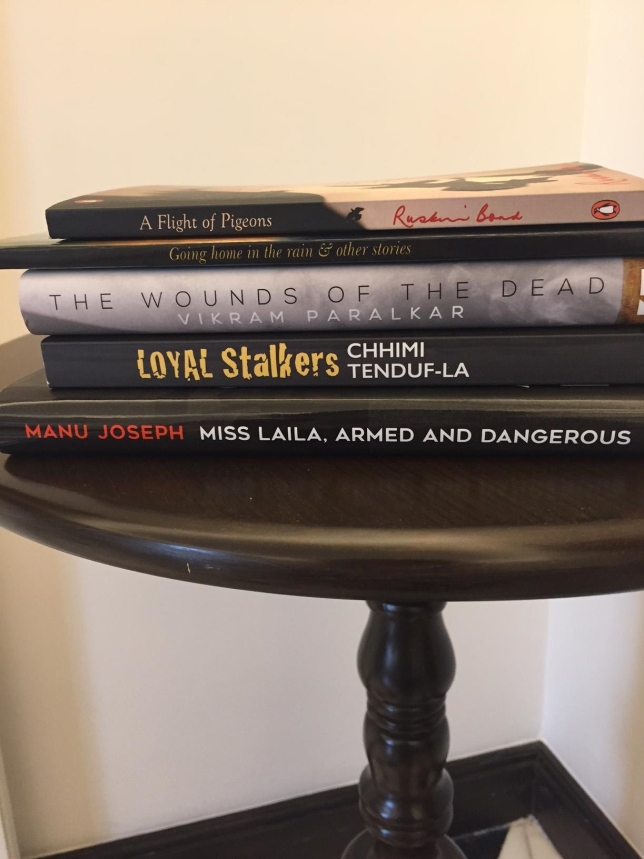
After breakfast, I met up with my fellow presenters, and Sri Lankan-based author Chhimi Tenduf-La, who is half-Tibetan, half English. I was going to ask Chhimi if he happened to know the Tokyo-based half-Tibetan, half-American writer Ann Tashi Slater, with whom I presented at the last Japan Writers Conference in Tokyo, but Chhimi pre-empted me. “Ann is my cousin,” he said. Small world. Chhimi was charming and funny, and I made it a point to pick up a copy of his new novel-in-stories, Loyal Stalkers.
The festival organizers had set up a desk in the hotel lobby. We asked them to arrange a car for us, and we went to the venue, in front of the historic Victoria Memorial Hall. Throughout the six days of the festival, sessions were held at two locations outdoors. One was under a tent, and another in a little courtyard adjacent to the museum.

The festival itself was exciting and smoothly run. I was humbled to be on the program along with a Nobel Prize winner, Bollywood stars, cricket heroes, and well-known writers. Our panel, on the sixth day went well, and was mentioned the next day in The Telegraph, Kolkata’s largest English-language newspaper.
Every evening, we writers were invited to a reception. The first one I went to was at the Calcutta Turf Club, which was an old colonial spot for horse-racing. That evening, I had the pleasure of meeting novelist and hematologist Vikram Paralkar who was born in Mumbai, but is now an American citizen living in Philadelphia. His latest book, The Wounds of the Dead, is an eerie, unclassifiable novel about a doctor at an ill-equipped clinic in rural India tasked with stitching up slaughtered ghosts. In this book, he proves that that one doesn’t need an MFA in order to craft beautiful sentences, but it helps to have an M.D. to get medical details correct.
The second day, TBASS editor Monideepa, who’s spent some time in Kolkata, showed Wan Phing and I around a bit. We walked along a riverside promenade and checked out an open-air market. I bought some souvenirs for my family. Then I caught a couple of sessions at the festival, including one with esteemed writer Perumal Murugan, whose latest book is from the point of view of a goat. He had just returned to writing and publishing after a controversy surrounding his last book, which had led to death threats.
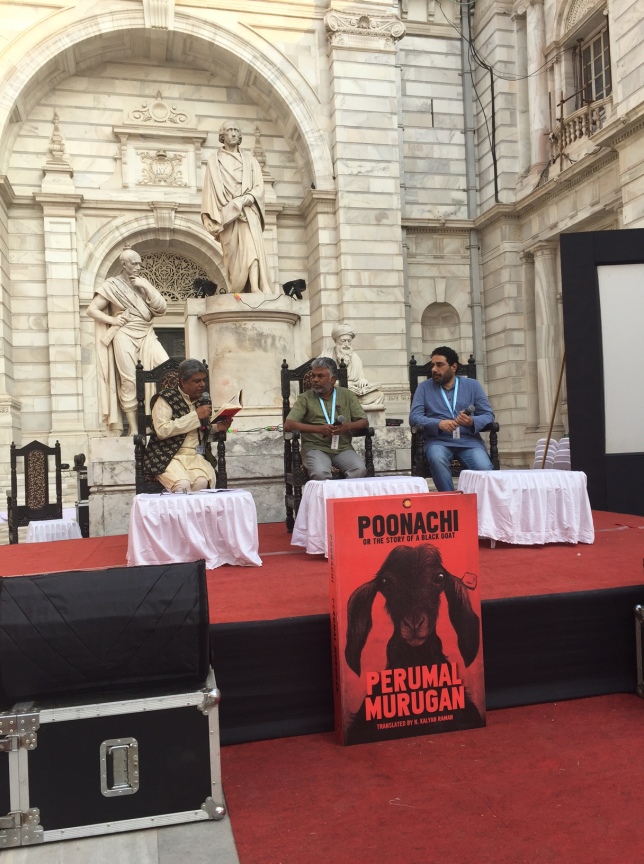
That evening, we attended a reception in the former Russian consulate, which is now a private residence. We were greeted at the door by the rich, young host. It was very posh, with a string quartet, and a chef preparing food on the patio next to the swimming pool. I met two more Booker Prize short-listers – Canadian-born David Szalay, who was one of Granta’s “Best Twenty British Novelists Under Forty,” and currently supports himself from his writing while living in Budapest, and the erudite and elegant Irwin Allan Sealy, whose books include a memoir, The Small Wild Goose Pagoda, and a novel-in-poems, Zelaldinus: A Masque.
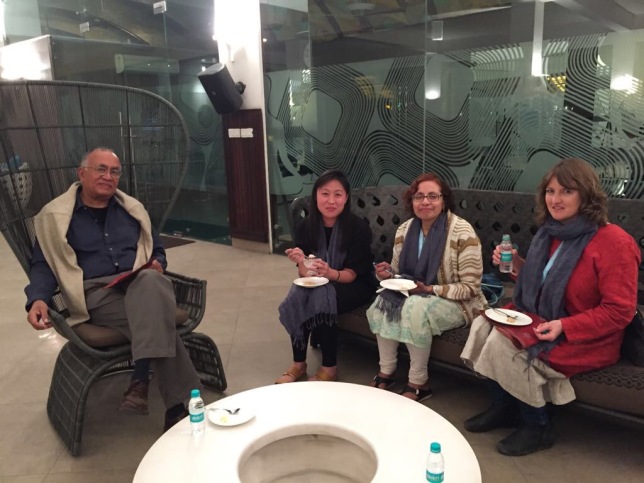
Needless to say, with a wallet full of rupees, and no other expenses (well, except for omiyage), I wound up buying a lot of books. In addition to those mentioned already, I snapped up copies of Murugan’s short story collection, The Goat Thief; Never Gone, a young adult novel about a group of high school friends by literary wunderkind Anusha Subramanian, who published her first novel at the age of twelve; Mrs C Remembers by Himanjali Sankar, which begins with the memorable line “ It is not that I have never imagined my mother-in-law’s death,”; and Milk and Honey, the bestselling debut poetry collection by headliner Rupi Kaur, who’d flown over with her entourage from Toronto for a spoken-word tour of India.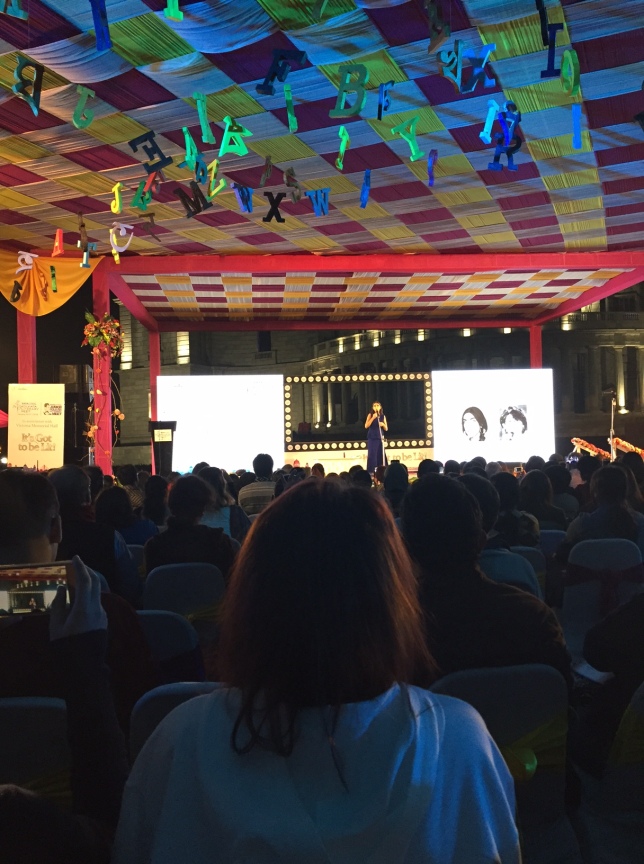
I was happy to be able to catch Kaur’s performance before setting out for the airport for my flight home. The audience was filled with teenaged girls, many in headscarves, many clutching copies of Kaur’s books. When she read a particularly resonant line, the girls raised their hands and snapped their fingers. Between recitations, I noticed that a few older men got up and left, perhaps confused by her mention of “boobs.” These guys were not her target audience. Although I’d always found her poems quite simple, when she read them aloud, I understood the allure. She had incredible presence and she connected with most of her listeners, including me. Her asides about her Indian mother in Canada made me reflect upon my own experiences as an American mom in Japan. My final impression of India was that of a country full of smart, literate, empowered young women. It was a magical ending to a storybook week.

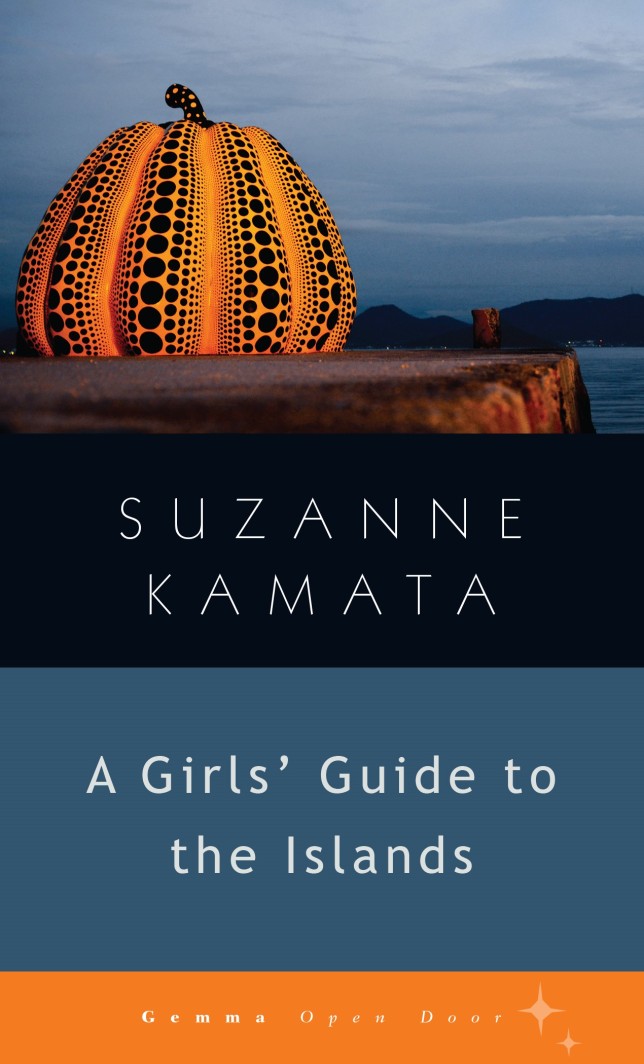 I’m so proud to announce the publication of A Girls’ Guide to the Islands, a nonfiction acccount of traveling around the Inland Sea of Japan with my daughter, who is deaf and uses a wheelchair. This book is the latest addition to the Gemma Open Door series for literacy learners.
I’m so proud to announce the publication of A Girls’ Guide to the Islands, a nonfiction acccount of traveling around the Inland Sea of Japan with my daughter, who is deaf and uses a wheelchair. This book is the latest addition to the Gemma Open Door series for literacy learners.



